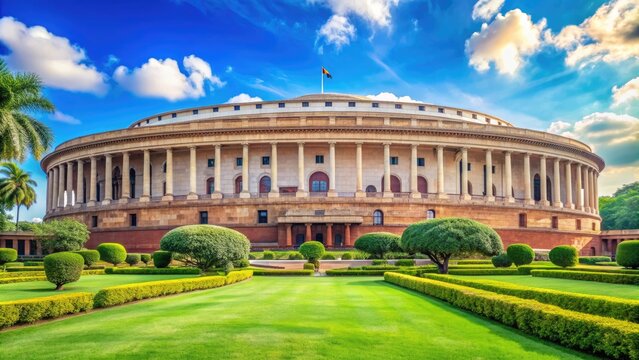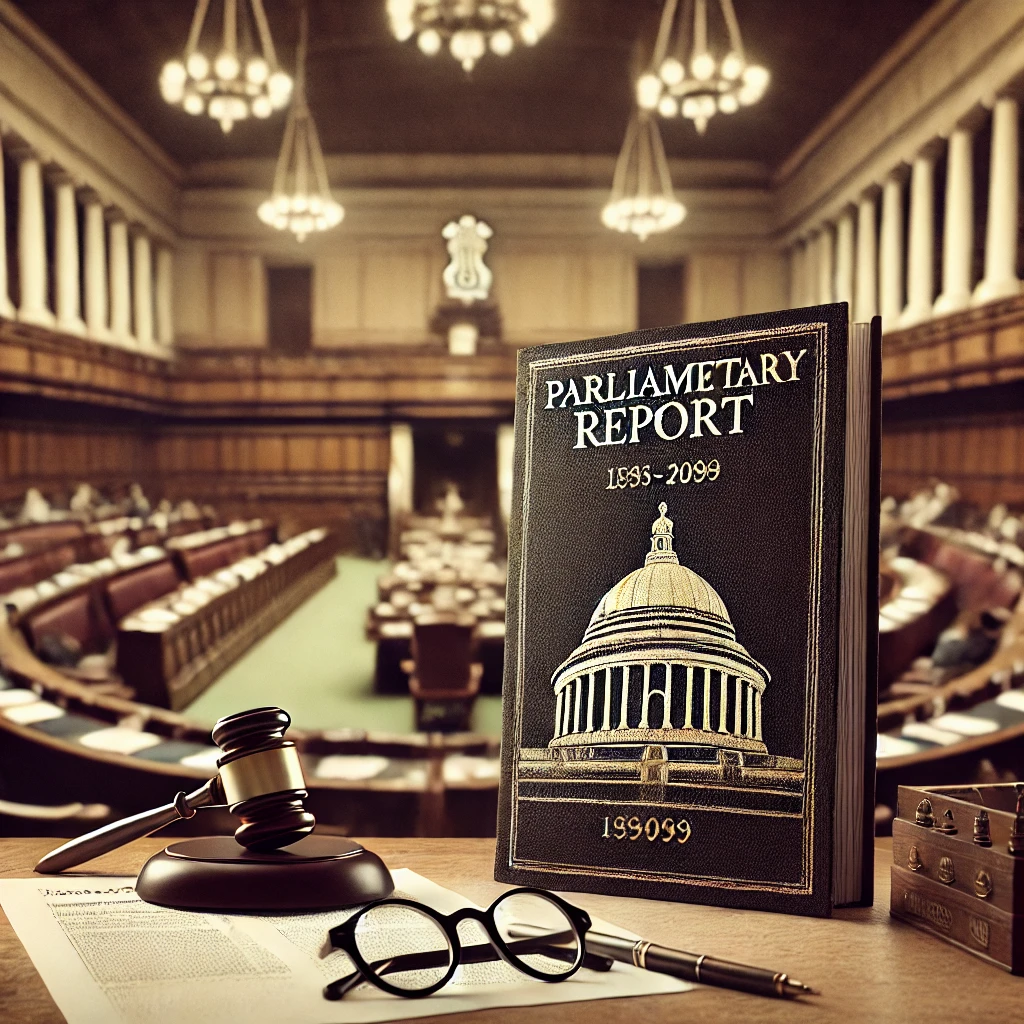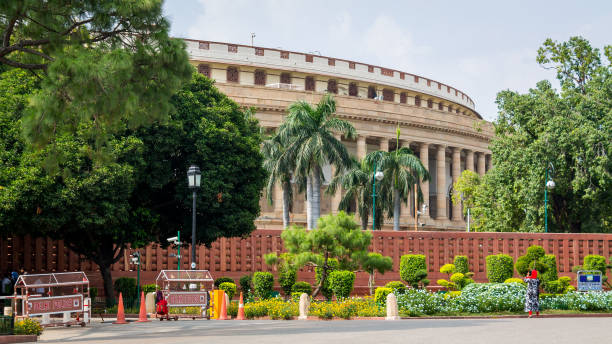India, the largest democracy in the world It has a strong parliamentary system which plays an important role in governance. Parliamentary meetings are not only an opportunity for legal debate and decision-making. But it also serves as a platform for publishing important reports. They are prepared by committees, ministries and other government agencies. These documents provide a wealth of information about a country’s performance, policies and areas in need of improvement…
This article explores the significance of the report published in the Indian Parliament session. and its impact on governance, transparency, and public perception.
An Overview of Indian Parliamentary Sessions
The Indian Parliament holds three plenary sessions every year:
Budget period (January to April):
The longest session of the year focused on the nation’s financial shape. This includes the presentation of the Union Budget. It summarizes government expenditure and revenue for the upcoming financial year.
Monsoon period (July to August):
It is often considered a short but decisive session, discussing pressing policy issues and reviewing governance mid-year.
winter semester (November to December):
This session closes out the legislative year by addressing pending bills and important reforms. Each session is a treasure trove of reports reflecting the performance of different sectors. Policy evaluation and guidelines for improvement

Types of published reports
Reports published during parliamentary sessions vary in scope and purpose. Some of the most important types include:
Report of the Controller and Auditor General (CAG)
India’s CAG tracks government spending and reveals inefficiencies or misuse of public funds. For example, in the past, CAG reports have highlighted large-scale irregularities such as coal allocation scams. or inefficiency in defense procurement These reports are often hotly debated in Parliament.
Report of the Standing Committee
Parliamentary standing committees carefully consider bills, policies and budgets before they are presented to the House. Their reports provide valuable guidance. This often shapes final legislation. For example, a report on education might recommend improvements to digital learning to reduce the urban-rural divide.
Economic Survey of India

The Economic Survey submitted to the Union Budget is a comprehensive document analyzing the country’s economic conditions, challenges and opportunities. They often set the tone for budget discussions and policy directions.
Ministry annual report
Each ministry releases its annual report during parliamentary sessions. It details successes, costs, and future plans. These reports are used to evaluate the performance of various ministries.
Policy documents and white papers
Policies and white papers are often published to outline proposed reforms or discuss the impact of ongoing policies. For example, a Renewable Energy White Paper focuses on strategies to achieve carbon emissions. Go to net zero by 2010.
Special report on social issues
The committee often produces reports on pressing social issues such as gender equality. Be it climate change or healthcare. These reports are useful.

The importance of these reports
Transparency and Accountability
Parliamentary reports help ensure that the government is transparent about its decisions and actions. It allows citizens to assess whether public funds are being used effectively. Or does the policy produce the desired results?
Evidence-based policymaking
These reports provide detailed information, case studies, and analysis. It allows the government to base policy on empirical evidence rather than assumptions. For example, a report on agricultural distress could highlight the impact of an unstable monsoon and recommend climate-resilient farming techniques.
Legal debate increases
With these reports, Members of Parliament (MPs) can engage in informed discussions. This is to ensure that discussions in Parliament are substantive and focused on real issues.
Running authority
The release of these reports brings important issues into the public domain. Media coverage of, for example, CAG research or economic surveys. It helps ensure that citizens are informed about the state of the country.
international relevance
Multiple reports especially economic and environmental reports It has global implications. For example, India’s performance in renewable energy or fiscal policy affects international trade, investment and cooperation.

Government and influence in society
The publication of reports in parliamentary sessions has a major impact on government and society as a whole. To find out:
Drive improvements
Many policy reforms in India have been driven by insights from parliamentary reports. For example, a CAG report highlighting inefficiencies in the public distribution system (PDS) led to the implementation of direct benefit transfer (DBT) schemes. This reduces leakage and ensures benefits to the intended beneficiaries…
forming public opinion
Reports often act as a catalyst for public discourse. When economic surveys predict strong growth in a particular sector. It increases public confidence and investment in the sector. On the other hand, reports that reveal corruption or incompetence can lead to protests. Media campaign and demands for responsibility
Encourage support and activism
NGOs, civil society organizations And activists often rely on parliamentary reports to strengthen their points. For example, a report on urban air pollution can serve as the basis for an advocacy campaign seeking stricter environmental regulations.
Strengthen participation in democracy
By providing transparent information about government actions These reports therefore help citizens to hold their representatives accountable. This enhances democratic unity and ensures that governance is consistent with public expectations.

Challenges in Utilizing Parliamentary Reports
Even though it is important But the parliamentary report also faces a number of challenges:
Access and language barriers
Although these reports are public, But they are often lengthy and written in technical jargon. This makes it difficult for the general public to understand. Efforts to simplify and translate these documents into regional languages are limited.
operating deficit
The recommendations in these reports are not always effectively implemented. political constraints Resource limitations or the inertia of the bureaucracy This often impedes the implementation of recommended reforms.
Public awareness is low.
Many citizens remain unaware of these reports or their importance. Media coverage often focuses on controversies rather than important findings.
Over-reliance on parliamentary committees
Although the committee plays an important role But relying too heavily on reports can sometimes delay the legal process. This is especially true on controversial issues where reaching consensus is difficult.
How do citizens benefit from parliamentary reports?
Making informed decisions
These reports can help citizens make informed decisions. Whether it is choosing a political candidate Policy support or investment in the area
Active participation by the government
Understanding these reports helps citizens participate in public consultations and debates. which influences policy decisions
Improving Citizen Support
Citizens can strengthen their demand for better governance and social justice by referring to information and insights from congressional reports.
Education and research
Students, researchers, and educators can use these reports as a valuable resource for studying public policy, governance, and socioeconomic trends…
Let’s meet together.
Reports published in the sessions of the Indian Parliament are an indispensable instrument of the government. Public responsibility and participation It provides a clear picture of the country’s successes and challenges. and suggest ways for improvement
as a citizen We have a responsibility to understand and engage with these reports. By doing this we hold our representatives accountable. Participate more effectively in the democratic process. and contribute to building a transparent and efficient governance system.
In a vibrant democracy like India These reports are not just documents. But it is an important part of making informed decisions. Ensure that the voice of the people is reflected in the corridors of power.





